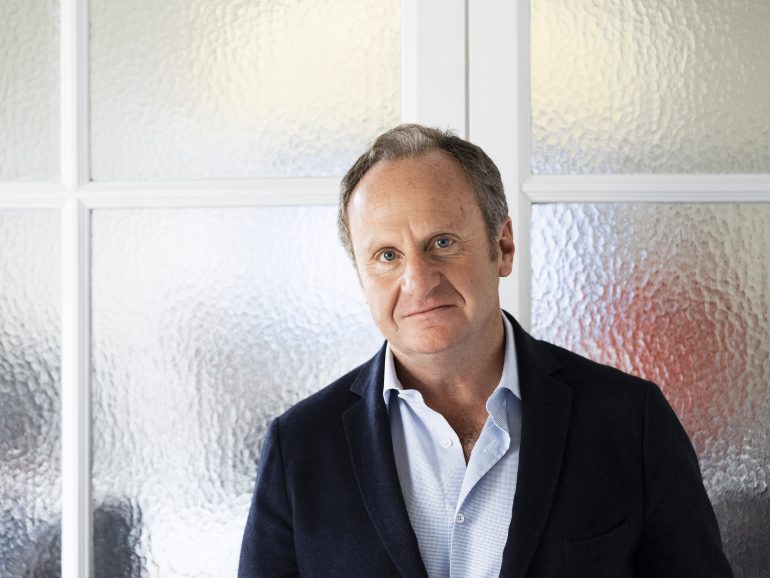An interview with Jacob Benbunan, co-founder and CEO at branding and design studio, Saffron Consultants, on the studio’s 20th anniversary. Edited excerpts here:
Who would you say is the most in need of a rebrand right now?
Europe to me is the body that needs an exercise in branding. Europe needs a purpose, a unified voice and a brand. A brand is not a blue flag with yellow stars, brand is much more than that, as we all know. So to me I’d have to say Europe.
Do you have advice for a young strategist?
Be a sponge. Try to learn as much as you can from whatever source, be as curious as possible and most importantly, listen.
Once a branding project is finished, how can you take it to the end customer with a limited budget?
This of course depends on the type of client you are working with, B2B and B2C brands need different launch strategies for sure. In any case, we are very fortunate to have at hand a set of tools in the digital world that we just didn’t have 20, 30 & 40 years ago. They allow for the launch of work to the end customer to be done in a very cost efficient way. So for me, go digital and think of unique strategies to garner buzz.
What has been the biggest challenge you have gone through in your career?
The most important challenge that someone who is responsible for an organisation faces is to build the team of senior members. I have a great team around me and that’s thanks to the secret formula of hiring people you believe are better than you in the things that you don’t excel at naturally so you can learn from them.
When was Saffron founded?
March 23rd, 2001.
What is the origin of the name ‘Saffron’ is there a story behind it?
Actually, interestingly Wally wanted us to be branded “Benbunan Olins” or “Olins Benbunan” or something of the sort. I was determined not to as I didn’t want to have my name as part of the logo. However, we both agreed that we didn’t want to have the words “brand”, “design”, “future” or “international”.
So one evening, I was watching a documentary at home about saffron the spice and its properties. With that documentary in mind, I came up with the idea of calling the brand Saffron. The storytelling around the spice, its value and of course, Spanish paella fit perfectly with the idea that a pinch a saffron can transform an average plate into an extraordinary one. This then ties nicely into the value we add as a brand consultancy.
Do you miss Wally Olins (co-founder at Saffron)?
Wally was a source of inspiration, those that knew him really well knew his strengths, as well as his weaknesses. He was stubborn, had a temper and often a short attention span but these weaknesses were completely offset by his generosity, teaching abilities, passion for history and his vast wisdom. When he gave advice it was always given with a filter of history which added to its relevance and was something I always appreciated very much. Lastly, he was extremely witty and had a great sense of humor, which was so important, making him a wise man but an interesting one too.
Coming back to the question, do I miss Wally? Yes, but I also need to come to terms with the reality, which is that he is not coming back and Saffron and I in particular, need to move on with the great memories he has given us.
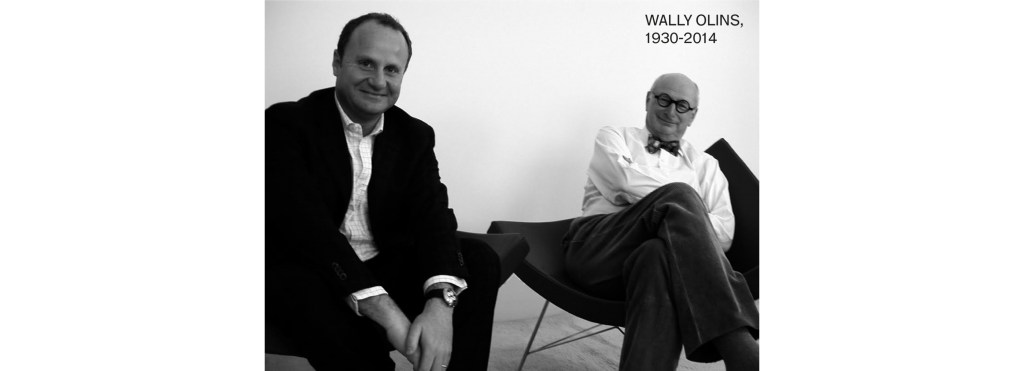
What do you look for in a young professional in your studio?
When you look at professional services companies, their workforce tends to be very homogeneous and to me that can get quite boring. At Saffron, we have designers, strategists, programme managers and on paper they look quite different, which brings variety and diversity to our team. I do look for where the candidate went to school, if the individual is well travelled and knows languages.
Once I’ve seen this, the next thing I look for is curiosity, which is key to our success. They need to have done their homework and really demonstrate their interest. Obviously the candidate must be technically able but I am in the fortunate position that I have heads of resources that can assess that.
What is branding to you?
What is branding to you? from Saffron Brand Consultants on Vimeo.
From which famous brand can one learn a lot from?
I must say that Apple keeps doing things amazingly well. Many thought that after Steve Jobs, Tim Cook would not be able to keep the brand up there. He might not have the creative genius and the brand might not be as innovative and disruptive but as a customer, I think they still do a brilliant job. They deliver on the promise.
Favourite book, movie and musician?
Movie: Monty Python’s Life of Brian always brings a smile to my face and the original Blade Runner is an absolute gem.
Book: This is not an easy read, it’s an intense book. You really need to want to read it and when you you do, you will probably want to put it down but once you finish it, it’s transformative. Life and Fate by Vasily Grossman.
Musician/Group/Band: Phil Collins and the band Genesis, The Clash and Fischer-Z all take me back to my university days in Boston and of course, I can’t miss Bob Marley.
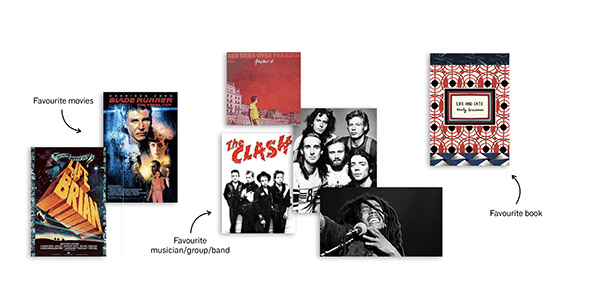
Is there a brand out there that you have always wanted to work with but haven’t?
If I had to think of a brand I admire it would be the Red Cross and if I had to find an object to symbolize the Red Cross, I’d have to use the egg. It’s aesthetically perfect, beautifully elliptical but it’s absolutely unstable. The Red Cross is on the one hand, respected and stands for humanity but it’s also vulnerable. You see Red Cross vehicles in war torn areas or catastrophic scenes. The mix between this pristine entity with its total vulnerability would be a lovely idea to explore with their teams.
Of the projects carried out by Saffron, which is your favourite?
This is a bit like asking a father, which of his 4 children is his favourite. For me it’s very difficult to give you my favourite, every client is a blessing and every job is the result of very hard work. But there have been two jobs that have been very important for Saffron, as a consultancy.
– Vueling: This job signified the beginning of Saffron’s maturity 3 years after we were founded.
– Youtube: This was our very first fully digital job we did and it was with the largest media streaming platform.
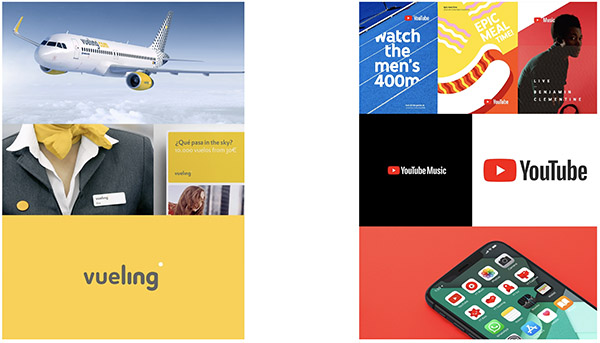
When you first had the Saffron idea, did you think you were going be where you are today?
I didn’t start Saffron to create a local brand agency or a short-term business. I started Saffron because I loved the industry and I thought we were capable of building a lasting legacy. Funnily enough, in our 20 year history, we’ve been approached many times for the purpose of an acquisition.
The reason why I’ve always said “no” was not always for financial reasons. It was for the freedom that having an independent company offered us. We can set our own agenda and grow at our own pace. In my opinion, Saffron has the potential to grow further, but I’d personally cap our growth at 100 employees. The moment you don’t know the name of every single one of your colleagues, you are in a whole other ball game in our type of business.
How do you balance creative teams in different parts of the world?
I don’t think we manage creative teams in different parts of the world. One of our secrets is that our people are genuinely diverse. This allows us to consult globally without delivering cliches and create brands that are culturally intrinsic to the markets in which they operate. Wally used to say that branding was the gift that culture gave to commerce and I think this is a wonderful way of putting it.
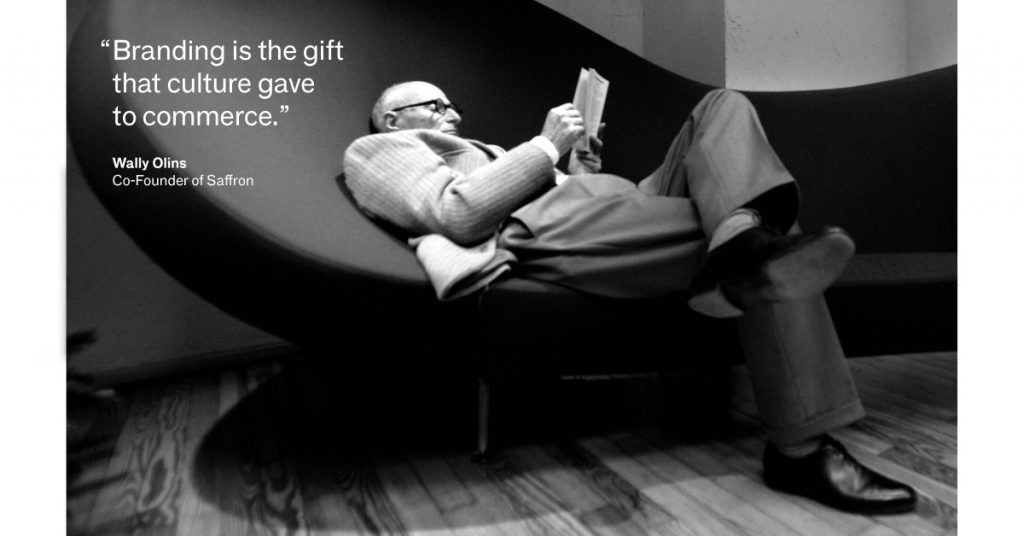
Is there a future in branding for designers and strategists?
To me, that’s like saying there is no future in wheat or any other essential commodity. Regardless of whatever lifestyle trends are out there, people will still consume them. There will always be opportunities, but obviously the people who work in branding nowadays do not have the same profile as years ago. As brands and branding become more sophisticated and more influenced by the evolving world we live in, the people who work in the industry must change as well.
Best advice for people starting up in branding and design?
***
The original version of this article can be found on www.saffron-consultants.com.

